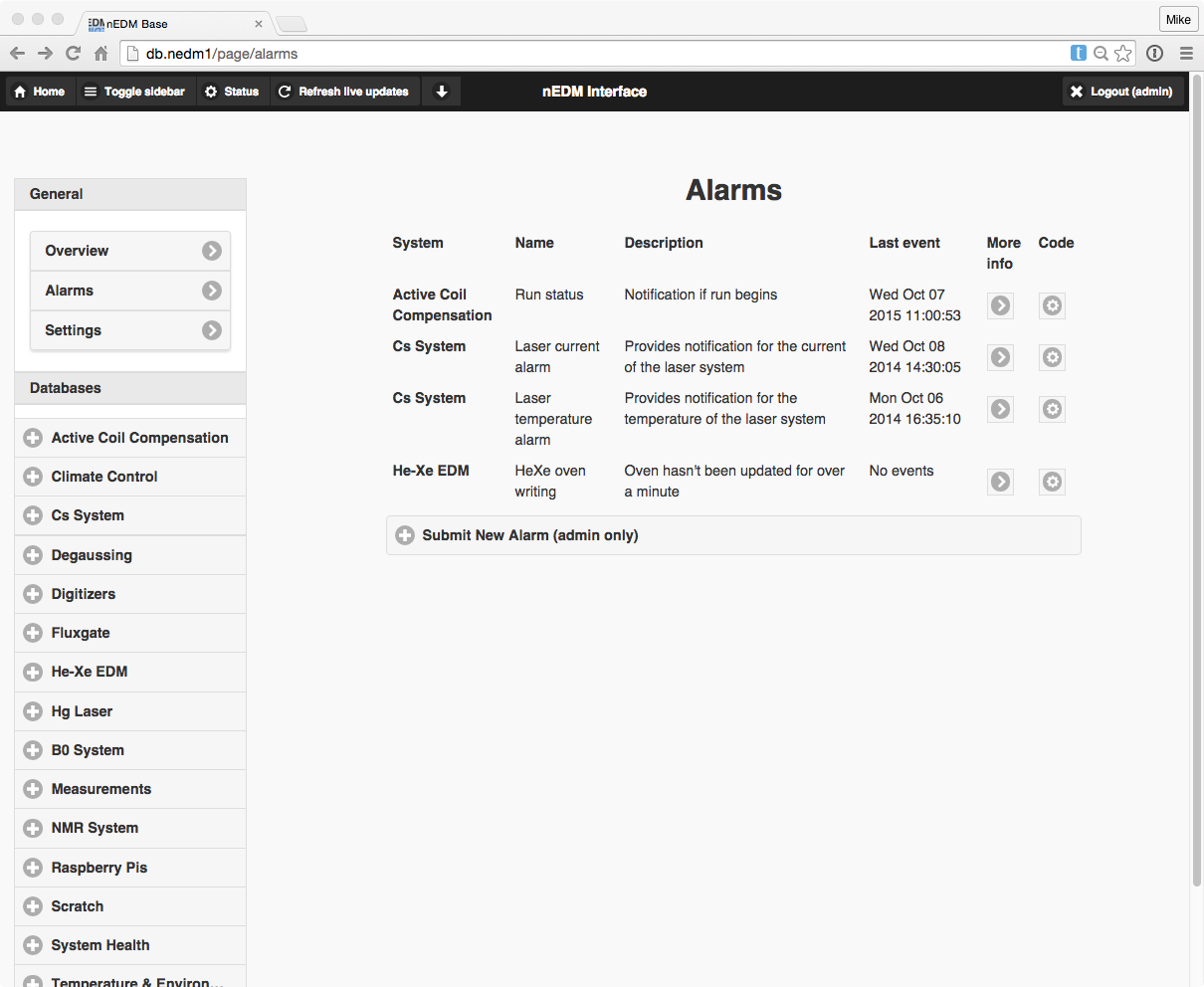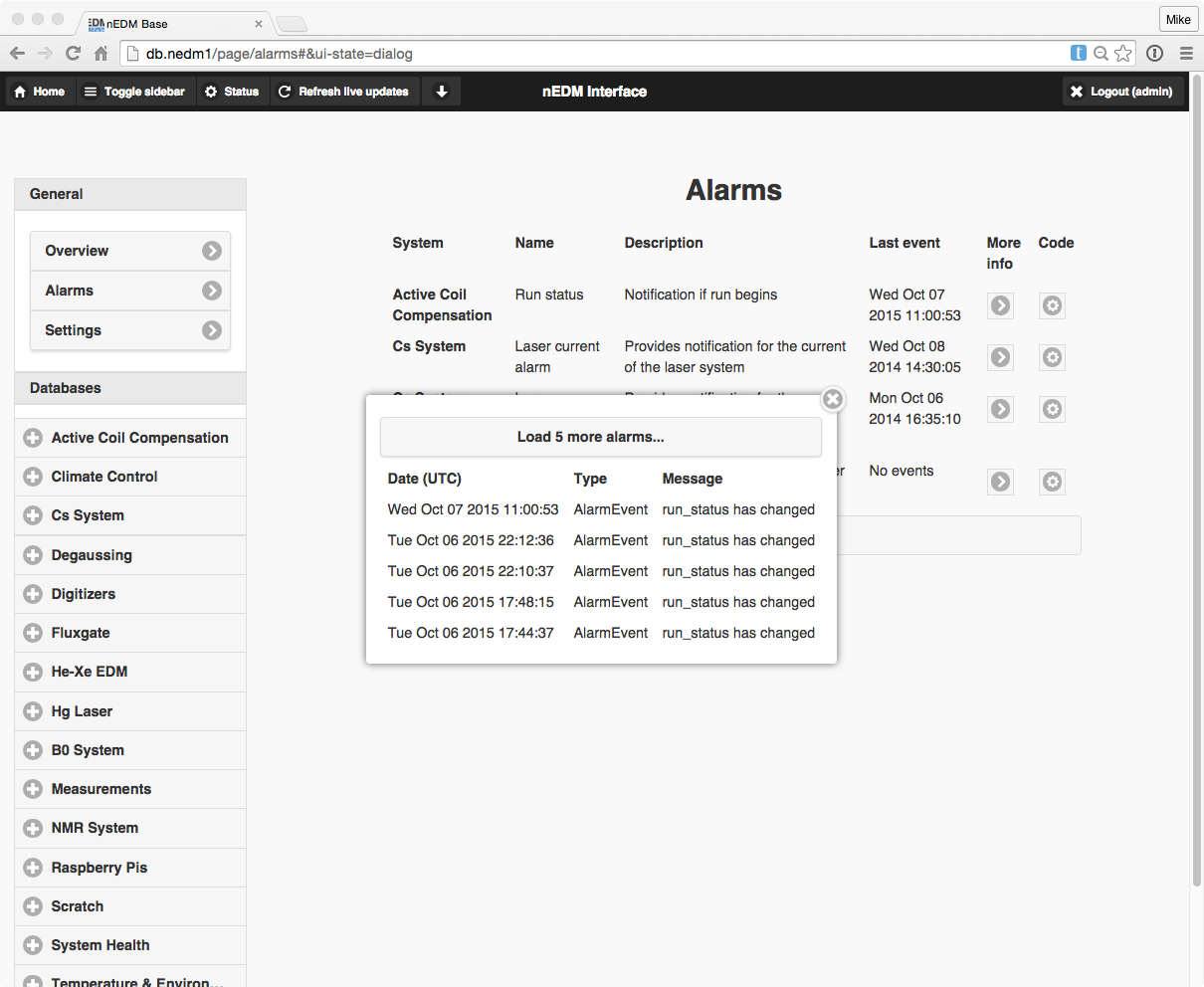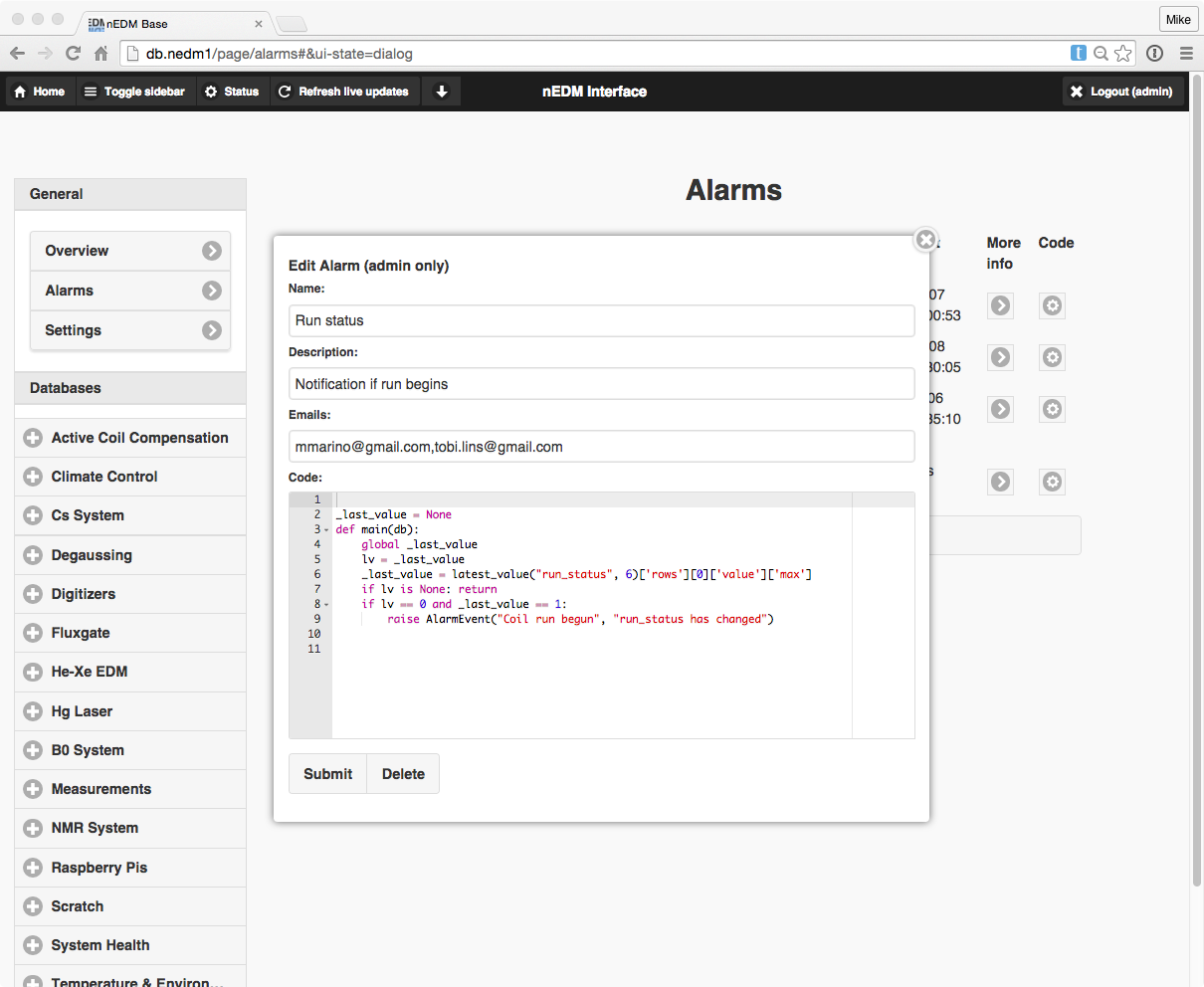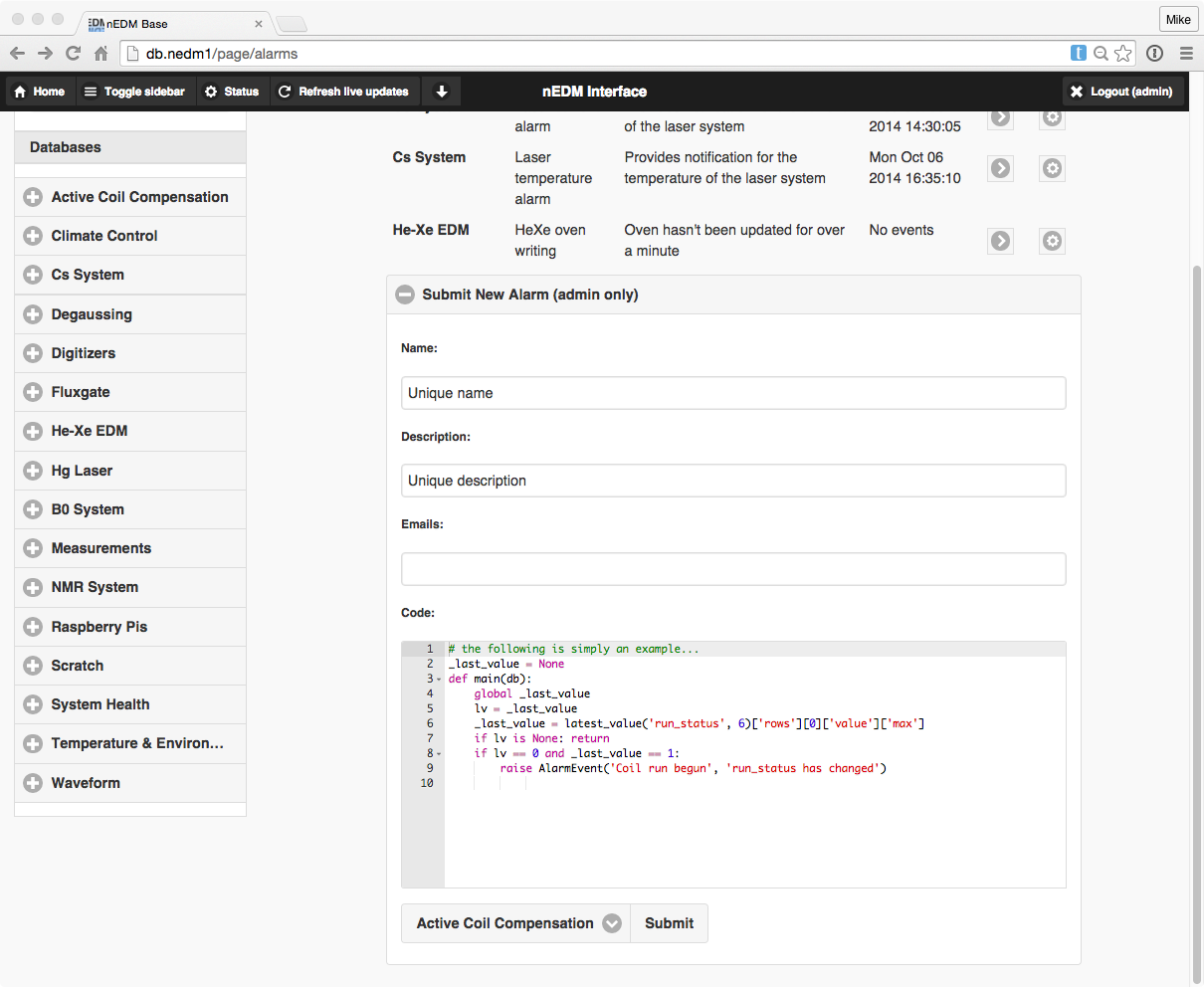nEDM Interface
Tutorials
Modules
Classes
Externals
Alarms
Alarms page
This page provides an interface to define alarms, which are small scripts that run periodically to check values of variables in the database. The daemon in charge of running this is part of the CouchDB Docker and the code to it may be found in that repository.
To learn about writing alarm code, skip to that section.
Interface
The front page of the interface collects all alarms from the different subsystems and displays them:

By clicking on the Info button, one can get information about when recent
alarms have occurred:

One can click on the Code buttons to view a screen where one can see/edit the
code, title, description, and emails. To edit an alarm document, one must
have write access to the relevant database.

Submitting an alarm is similar to editing an old one, just open the collapsible at the bottom of the page. To submit an alarm document, one must have write access to the relevant database.

Writing alarm code
Example code for an alarm:
_last_value = None
def main(db):
global _last_value
lv = _last_value
_last_value = latest_value('run_status', 6)['rows'][0]['value']['max']
if lv is None: return
if lv == 0 and _last_value == 1:
raise AlarmEvent('Coil run begun', 'run_status has changed')Points to note:
- all alarms need to have a
mainfunction - all alarms have access to the function
latest_value, which grabs information about a single variable from the database. This function looks like:def latest_value(var_name, group_level=100): """ Get the latest value of a given variable, this returns the output from the _stat function, which will look like: { u'rows': [ {u'value': {u'count': 1, u'max': 8.35961456298828, u'sum': 8.35961456298828, u'sumsqr': 69.88315564172574, u'min': 8.35961456298828}, u'key': [u'Bx', 2014, 4, 4, 13, 7, 22]} ] } If a group_level is given <=6, then the values will be agregated. (This is an efficient way to look e.g. for extremes over the last minute/hour/day/etc.) """ - all alarms need to raise certain exceptions to notify a change in alarm
state. The available exceptions (with rising levels of criticality):
AlarmWarningAlarmErrorAlarmCritical
All exceptions should be called like:
if alarm_condition == True:
AlarmError("error seen here", "More descriptive text about the error")Alarm scripts should always raise exceptions if an alarm condition exists. The alarm daemon keeps track of the state and only sends emails when the state changes (e.g. an alarm appears, the criticality changes, or the alarm clears).